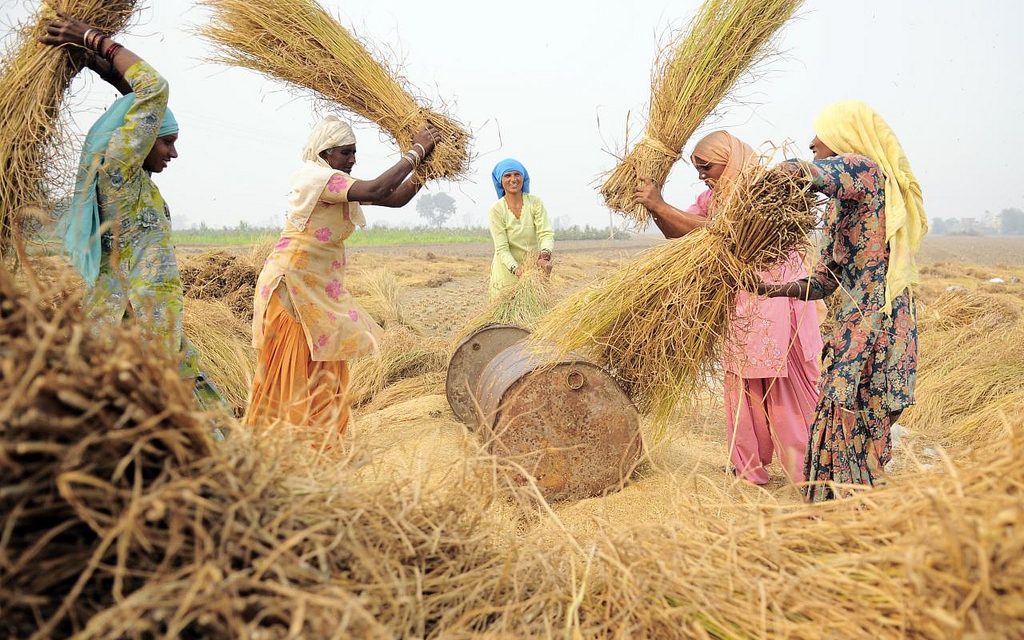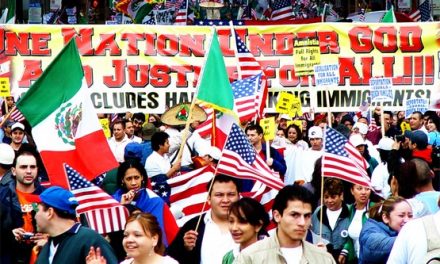A deep problem in understanding Christianity as truly “good news” is our temptation to ignore the bad news. We hear – on this “joyful Sunday” of Advent – a glowing, celebratory reading from the prophet Zephaniah. Why the reason for such rejoicing? The reading does indicate some reason: “The Lord has removed the judgment against you” and so “The King, the Lord, is in your midst” and “you have no more misfortune to fear.” God will renew us, and is even depicted as dancing and singing in joy over us.
Sounds great, right? But this is the tail end of the prophet’s short discourse. As for the rest of the book, the introduction in the Catholic Study Bible tells us that Zephaniah “emphasizes, perhaps more than any other prophecy, the devastation and death that divine judgment will bring.” Almost any line from the book confirms this. Consider these passages:
I will completely sweep away all things
from the face of the land—oracle of the LORD.
I will sweep away human being and beast alike,
I will sweep away the birds of the sky,
and the fish of the sea.
I will make the wicked stumble;
I will eliminate the people
from the face of the land. (1:2-3)
Wow, we need to be thankful for the rainbow from Noah’s story, because this sounds pretty total. But hang on, it gets plenty worse:
The sound of the day of the LORD! Piercing—
there a warrior shrieks!
A day of wrath is that day,
a day of distress and anguish,
a day of ruin and desolation,
A day of darkness and gloom,
a day of thick black clouds,
A day of trumpet blasts and battle cries
against fortified cities,
against lofty battlements.
I will hem the people in
till they walk like the blind,
because they have sinned against the LORD;
And their blood shall be poured out like dust,
and their bowels like dung.
Neither their silver nor their gold
will be able to save them. (1:14-18)
It’s hard to get more graphic than pouring out bowels like dung. So, where does the rejoicing come in? The promise that is offered at the end of Zephaniah is specifically given to “a remnant” (3:12-13) who will witness the coming of the nations to Jerusalem to worship the true God. It is these who “shall do no wrong and speak no lies” (3:13) over whom God rejoices and sings.
John’s baptism is for the forgiveness of sins. Hence, when people ask “What should we do?”, they mean, how should we now live in light of the coming judgment. John makes this clear with challenging but doable tasks. This is not quite what Christ demands – think about what happens with Zacchaeus, the tax collector at the other end of Luke’s gospel, which is even more dramatic – but it at least suggests a substantial change from business as usual. Stop all this hoarding and extorting. Stop looking out for yourself in dishonest ways.
As John points forward in his conclusion, the “day of the Lord” he envisions – the day of Christ’s coming – is most certainly something like the division of judgment that Zephaniah also envisions when the Lord comes in our midst. Indeed, the threshing and winnowing of wheat is basically a violent process, whereby the wheat is beaten, shaken, and tossed into the air, all in order to separate the nourishing kernel from all impurities! John’s following out there by the Jordan is, in essence, the remnant, and John is warning them to be ready for the day. If they are ready, they can look forward to something like the great, glowing words of Zephaniah. So by all means, let us be like them and be “without anxiety” and rejoicing, as St. Paul emphasizes, if we are ready.
But if they are not ready? They should read the rest of Zephaniah, and maybe consider what it will mean for them when the Lord, the great King, finally does appear in their midst.





